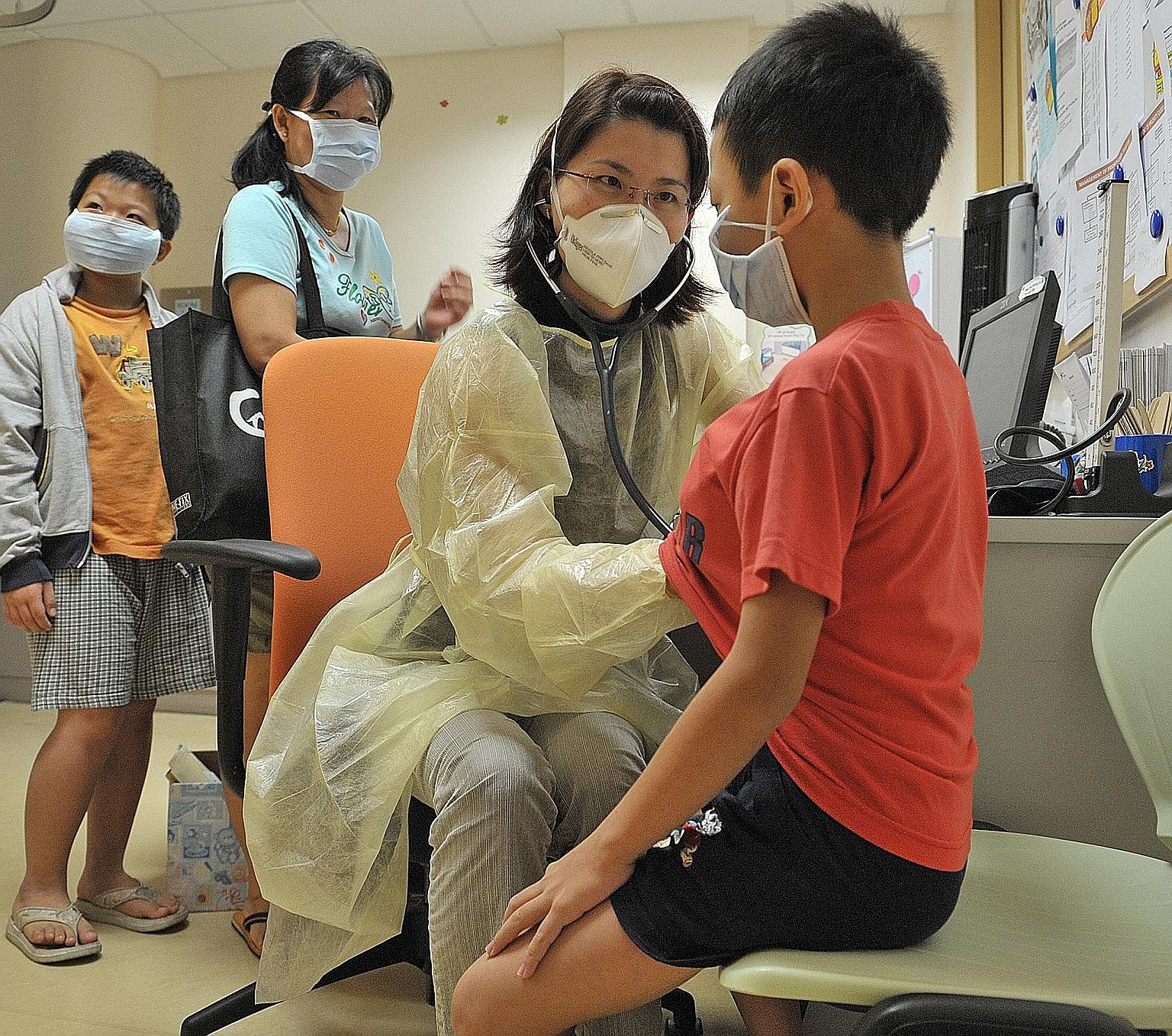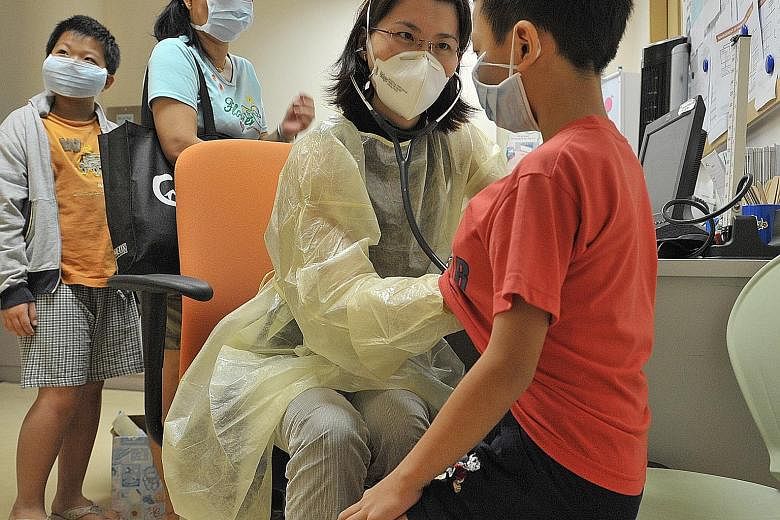One in five complaints to the Singapore Medical Council (SMC) last year resulted from poor communication between doctor and patient, it was reported in September in The Straits Times.
To remedy this, the SMC has published revised guidelines for ethical conduct and communication for the medical profession, to better align professional behaviour and to moderate patient expectations. However, a set of well-crafted guidelines alone is unlikely to achieve these vital goals.
How can patients and families feel empowered to take charge of their own healthcare encounters and establish a balanced and trusting therapeutic relationship with their doctors?
Patients, families and societal "activation" are the key. Activation refers essentially to having the knowledge, skills and confidence to manage one's health in such a way as to improve one's health-related outcomes.
Having "activated" patients and family members means encouraging positive healthcare behaviour, such as attending health screenings and keeping up with a healthy diet. Studies show that activated patients are also more capable of managing their medical conditions, and have lower rates of hospitalisation and overall healthcare costs. They are also positive role models for other patients.
Instead of being passive recipients of care, such patients feel empowered and active, eventually becoming volunteers, partners and even leaders in co-creating better healthcare with their doctors.

What would such behaviour look like? The example of Mr Kheng (see sidebar) and his mother sheds some light.
DOCTORS MUST DO THEIR BIT
Doctors must also learn to be better partners with patients and diminish their role as the paternalistic authority to become more effective coaches.
-
Dementia patient's son steps up to be an 'activated' caregiver
Madam Kwok is an elderly woman who was diagnosed with dementia 10 years ago. Initially a cheerful, active woman with a fondness for singing karaoke, she grew increasingly quiet and eventually lost her ability to speak.
Her ability to perform basic activities of daily living declined. This started with assistance for bathing and toileting, progressing to dependence for even feeding and dressing. The burden of looking after Madam Kwok as her condition declined fell mainly on her son, Mr Kheng.
Rather than feel helpless and overwhelmed, Mr Kheng decided to take charge of his mother's care. During consultations, he asked me multiple questions on the nature of the illness, its impact on patient and family, and the complications to be expected.
In doing so, he is better prepared for the burden of care required and anticipates the resources required.
He will do online searches to better understand the indications and side effects of medications his mother is taking, clarifying with the doctor about the information learnt.
As a result of his better understanding of the medications, Mr Kheng was confident in the daily preparation of his mother's medication.
Madam Kwok's symptoms have been well controlled over the years. She was warded only four times (for unexpected infections) over the many years under my follow-up.
Talking to our nurses, Mr Kheng also found out what community resources are available for people with dementia and explored these options on his own. In a bid to keep his mother engaged, he enrolled his mother in a dementia daycare facility, for example.
He started attending the many caregiving talks offered by the Alzheimer's Disease Association. There, he obtained more useful information about dementia from facilitators, and enjoyed the sharing of related experiences and peer support from other caregivers. He brings home the lessons on physiotherapy, feeding and methods to engage a person with dementia, to help his mother.
Mr Kheng continues to cope well while caring for his mother, often sharing with me new discoveries about her which he encounters daily.
By becoming activated, he transformed caregiving from a potentially stressful and demoralising experience, to one which is fulfilling, with quality time spent with his beloved mother.
Mark Chan
Effective engagement is not about achieving patient "compliance" with professional recommendations, but about promoting dialogue and building trusting relationships between patients, families, healthcare professionals and the community. Each participant in the care continuum has a better understanding of the relevant concerns, and shares the responsibility of determining decisions for treatment.
Can such "activation" of patients and families be possible here? There are barriers. In a fast-paced society, we prioritise other economic pursuits above healthcare for ourselves and our families.
Where clinicians are concerned, many of us are not equipped with the necessary skills to engage and activate our patients and families.
Our healthcare funding structure inadvertently places greater focus on crisis care over health maintenance, and dis-incentivises individuals and families from staying healthy and self-managing their chronic illnesses.
Evidence-based interventions such as coaching, self-management support and peer-to-peer support are not readily available or given sufficient funding.
To be fair, progress has been made in recent years. The Agency for Integrated Care has been highly effective in designing and coordinating elderly healthcare resources based on ongoing feedback from end-users.
Rather than viewing the community as passive recipients of care, the Ageing-in-Place programme organised by the Alexandra Health System has nurses working closely with grassroots leaders to meet both healthcare and social needs of the frail elderly.
In the same vein, the Neighbours for Active Living initiative by the Eastern Health Alliance entrusts volunteers living close by to take on the task of monitoring the health status of the elderly with multiple chronic diseases.
Many in our society have also risen to the challenge to be activated.
More are joining disease support groups to provide peer support and be better informed about their medical conditions.
The roles of volunteers in healthcare in Singapore are ever expanding, from manning helplines to befriending the confused elderly in hospital overnight - filling vital gaps of service in the complex healthcare system.
The Tan Tock Seng Hospital CareConnect Volunteer Committee, comprising an equal number of volunteers and healthcare workers, has completed successful projects such as a collective effort to improve hand hygiene in the hospital.
In the face of multiple challenges posed by an ageing population, we all need to step up and be activated.
As a doctor, I need to spend the necessary time to educate my patients and families about their health conditions, and to provide opportunities and resources for them to take charge of their health.
Patients and family members will need to move out of the comfort zone of passively receiving care and medications, to ask more questions and seek ways to improve their own health and the healthcare services they receive.
•The writer is the head of department and senior consultant geriatrician at Tan Tock Seng Hospital, and co-chairman of the TTSH CareConnect Volunteer Committee.

